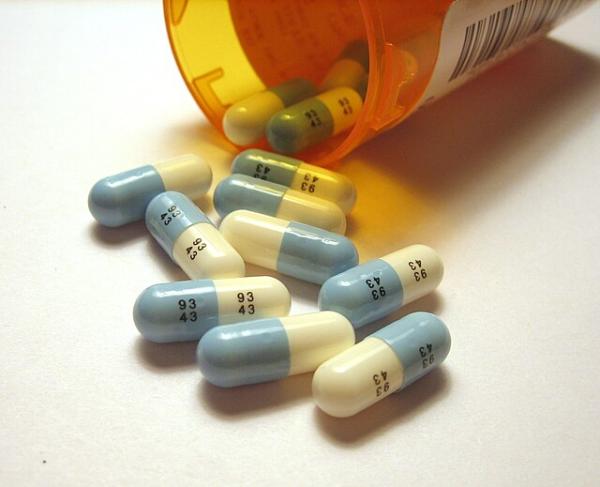
From 1968 to 2020, Americans experienced a remarkable increase in life expectancy, from 70 to 78 years. Much of that was due to advances in drugs and vaccines, many of which are now unavailable because of shortages. According to the University of Utah Drug Information Service, in the first quarter of 2024, 323 drugs were in shortage — the highest number ever.
Shortages are vexing to practicing physicians and their patients. Dr. Deborah Greenhouse, a pediatrician in South Carolina, tweeted this:
OK pediatricians, I'm starting a new contest: Who can rack up the highest number of patient calls and texts in one day from parents who can't find a pharmacy with their child's #ADHD medication? I'm at 6 so far this morning. Do I win?
That followed a tweet of hers on the same theme several months earlier:
Today: I tried to prescribe amoxicillin for an ear infection: The pharmacy didn't have it. I tried to prescribe Tamiflu for flu. The pharmacy didn't have it. I tried to prescribe Adderall for ADHD. The pharmacy didn't have it. If that doesn't bother you, it should.
It does bother me, and it has for a long time. These are essential drugs, and such shortages are neither new nor rare. Several years ago, University of Chicago researchers surveyed 719 pharmacists at large and small hospitals across the country and found that all reported experiencing at least one drug shortage in the previous year, and 69% had experienced at least 50 shortages in that time. The majority were generic injectable pharmaceuticals commonly used in hospitals, including analgesics, cancer drugs, anesthetics, antipsychotics for psychiatric emergencies, and electrolyte solutions needed for patients on IV supplementation.
Hospitals are scrambling to ensure adequate supplies of drugs in shortage or to find substitutes for them. The University of Chicago study found that one-third of hospitals had to ration drugs at least once. That means that some patients got the second or third choice of drug treatment, increasing the likelihood that the drug would be ineffective, be only suboptimally effective, or have unacceptable side effects.
Much of this is preventable. To ameliorate drug shortages, we need a policy change that would enable overseas manufacturers to sell products in the United States that already have received marketing approval from certain foreign governments with standards comparable to those of the U.S. Food and Drug Administration, and vice versa. In a word, reciprocity.
Approval in one country on the list would be reciprocated automatically by the others (subject to the creation of approved labeling in the appropriate format, language, and other formalities). That would afford drugmakers in those countries rapid access to the U.S. market, helping to alleviate our shortages and preventing future ones. By making additional drugs available in the U.S., it might even put downward pressure on drug prices.
Reciprocity would ameliorate other problems as well, such as the FDA's dragging its feet on the approval of important drugs and vaccines that have been given the green light elsewhere. For example, Bexsero, a vaccine to prevent meningitis B, was approved in 2013 by the European Union, Australia, and Canada, but not by the FDA until 2015.
Another example was the inexcusable delay before the FDA's 2015 approval of Fluad, a flu vaccine containing an adjuvant that boosts the immune response. It is used primarily in the elderly, whose immune response to flu vaccines typically is poor. Fluad had been used in Italy since 1997 and approved in more than three dozen countries. The 18‐year delay in availability in the U.S. undoubtedly resulted in many avoidable hospitalizations and deaths. (These sorts of lapses are emblematic of long-standing management problems at the FDA, but that's a story for another day.)
The stage is set for reciprocity of approvals. The U.S. has participated in international deliberations that have led to harmonized standards between the FDA and its foreign counterparts. Many countries now have a standardized dossier for seeking approval of new drugs; the U.S. accepts research conducted in other countries to support drug and medical device approvals; and the FDA has established Current Good Manufacturing Practices (CGMP) for foreign production facilities.
An example of the need for the ability of U.S. distributors to acquire drugs from abroad occurred recently during a shortage of penicillin here. According to a report in Reuters, Mark Cuban's Cost Plus Drug Company said on July 17 that it is working with the U.S. FDA to temporarily import and distribute penicillin in the country. The online pharmacy, which offers low-cost, commonly prescribed medications, will import and distribute 1.2 million units of penicillin from Portugal-based Laboratórios Atral S.A. to mitigate the shortage of Pfizer's Bicillin L-A.
This case-by-case negotiation to address drug shortages is inefficient and unwieldy. More sensible would be U.S. participation in a new International Recognition Procedure (IRP) introduced at the start of the year that allows U.K. drug regulators to rapidly exchange information with their counterparts in the E.U., U.S., Japan, Australia, Canada, Switzerland, and Singapore. In February, the U.K. cleared in just 30 days a new formulation of a cancer drug, Xgeva, based on a European approval.
In a statement, the U.K. said that because of the IRP, "medicines that have been approved in other countries with stringent regulators will get to U.K. patients without delay, resulting in a more rapid, efficient, and cost-effective process for life sciences companies." We could and should do the same.
Americans need to be assured of the availability of pharmaceuticals in the marketplace so that healthcare providers have more reliable inventory, experience fewer shortages, and have more choices when shortages arise. Reciprocity of drug regulatory decisions would help to achieve that, and the White House and Congress should implement it without delay.
An earlier, abbreviated version of this article appeared in April in the Washington Examiner.



